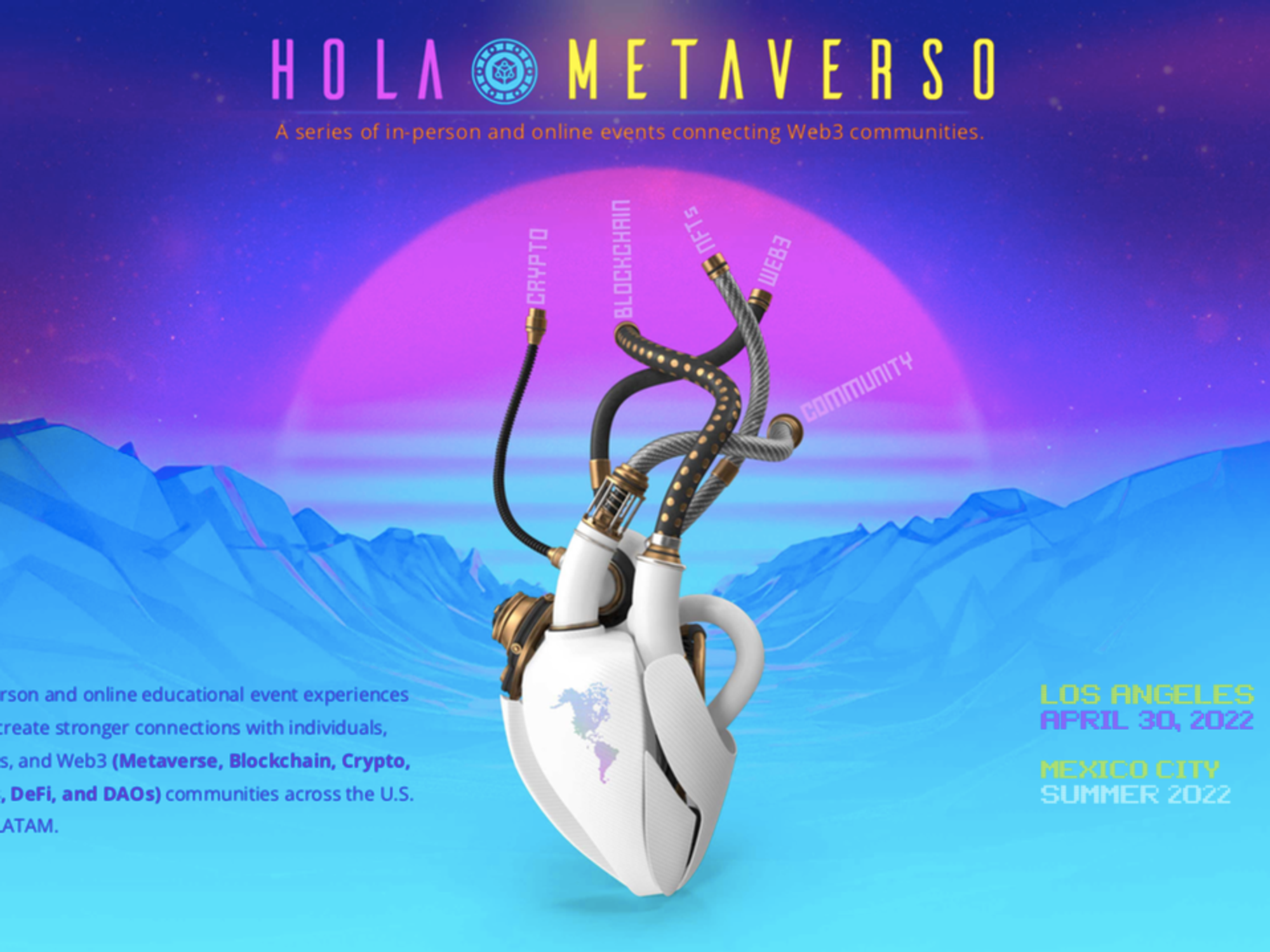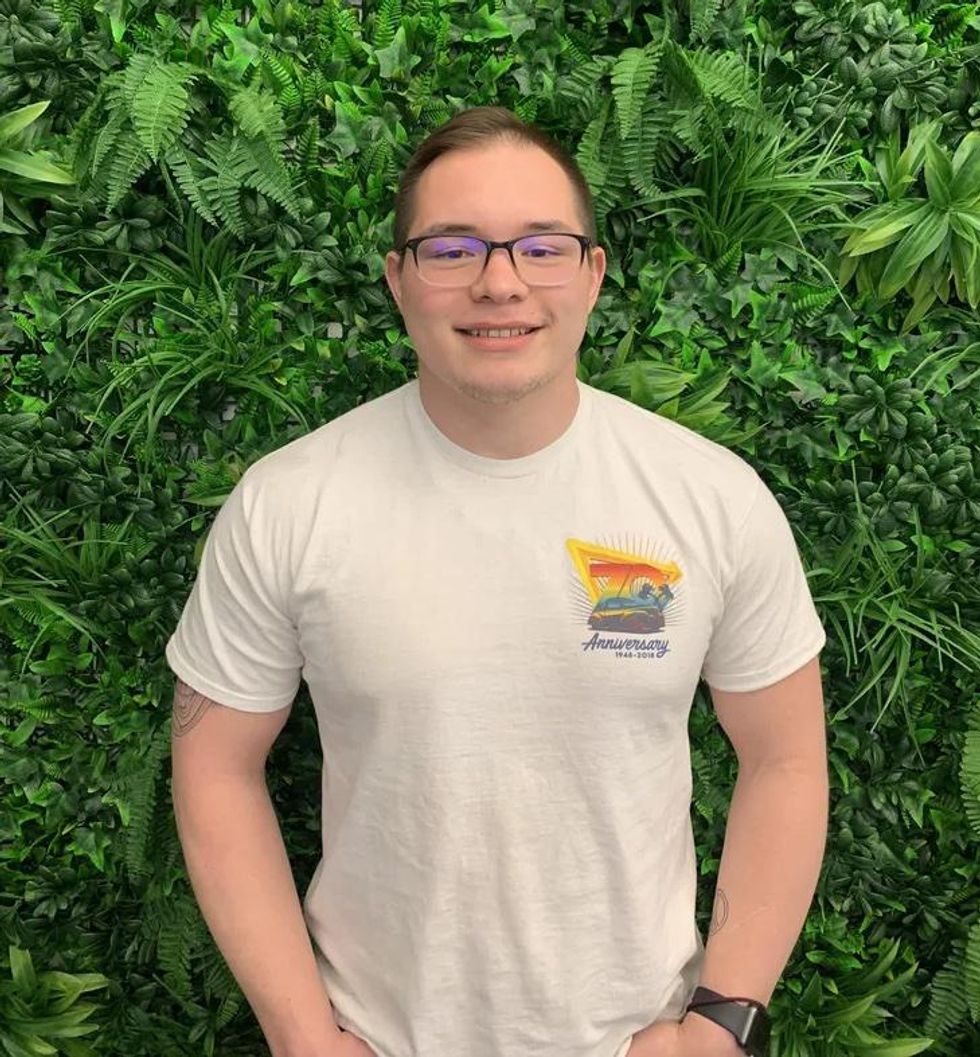Hola Metaverso Wants To Bring the Latino Community Into Web3
Decerry Donato is a reporter at dot.LA. Prior to that, she was an editorial fellow at the company. Decerry received her bachelor's degree in literary journalism from the University of California, Irvine. She continues to write stories to inform the community about issues or events that take place in the L.A. area. On the weekends, she can be found hiking in the Angeles National forest or sifting through racks at your local thrift store.

To many outsiders, the Web3 community can feel like a bunch of crypto bros in Patagonia jackets. At least that’s what Tameron McGurren-Leal thought before he signed on as business development manager for Hola Metaverso, a new project that aims to educate the Latino community about today's rapidly emerging digital realms.
Hola Metaverso's mission is to educate the Latino community by hosting in-person and online educational events that put in layman’s terms what exactly is going on with the metaverse, as well as blockchain-related technologies like crypto, NFTs, DeFi, DAOs—and all the seemingly endless linguistic jargon that comes with it.
The 23-year-old McGurren-Leal got involved with Hola Metaverso not long after graduating from the University of Northern Iowa with a degree in finance and real estate. While perusing through his social media feeds, he stumbled upon a Twitter Spaces where he connected with Oszie Tarula, a digital media consultant who is the mastermind behind Hola Metaverso.
“Twitter is a cesspool of really cool people,” McGurren-Leal said. “They've kind of pivoted from a meme place to actually community building.”

Hola Metaverso's business development manager Tameron McGurren-Leal.
Courtesy of Hola Metaverso.
While McGurren-Leal resides in Iowa, he has L.A. roots through his father, who was born and raised in East Los Angeles. He poured himself into the L.A. startup scene after listening to podcasts like investor Jason Calacanis' "This Week in Startups" and following Twitter accounts like Alexis Ohanian, Meagan Loyst and Gen Z VCs. “I wanted to be more engulfed into the L.A. tech scene and L.A. Latino scene,” he said.
The idea for Hola Metaverso became reality in December 2021, when Tarula gathered friends and acquaintances—all of whom identify as Latino and live in L.A. or neighboring cities—to start the project, with each person assigned a role. According to the 2020 Census, Latinos make up nearly 49% of Los Angeles County's roughly 10 million residents—yet much of the community is left out of the conversation around emerging Web3 applications, in line with the overwhelmingly white composition of the tech and startup worlds.
“There's a big push from Latino communities and typically forgotten communities to want to be a part of Web3,” McGurren-Leal told dot.LA.
The Hola Metaverso team are now planning an inaugural one-day tech conference ton April 30 at the Avenida Productions studio in Historic Filipinotown. The event will be live-streamed for anyone that can’t attend in person, with details posted on the conference's website.
Panelists will include Web3 Familia founder Orlando Gomez, intellectual property attorney Eliana Torres from Web3Lawyers, ThinkNow co-founder Mario X. Carrasco, Blockasset’s Pablo Segarra and filmmaker Fanny Grande.
Aside from sponsorships that are still being finalized, the project will be funded by the event's ticket prices ($150 per person). That includes access to experts in Web3, live entertainment, food and networking. Registration is open until all 200 tickets are sold out.
By creating an event with a Latino focus, McGurren-Leal says Hola Metaverso is hoping to tap into the cultural sense of compañerismo. “We are a very inclusive group,” he noted, “and we’re really trying to make sure it's an inclusive environment.”
- Metaverse Comes to Santa Monica With FlickPlay - dot.LA ›
- NFT LA Conference's Opening Night Aims to 'Demystify Crypto' - dot ... ›
- Los Angeles' Guide to the Metaverse - dot.LA ›
Decerry Donato is a reporter at dot.LA. Prior to that, she was an editorial fellow at the company. Decerry received her bachelor's degree in literary journalism from the University of California, Irvine. She continues to write stories to inform the community about issues or events that take place in the L.A. area. On the weekends, she can be found hiking in the Angeles National forest or sifting through racks at your local thrift store.





 Image Source: Skyryse
Image Source: Skyryse